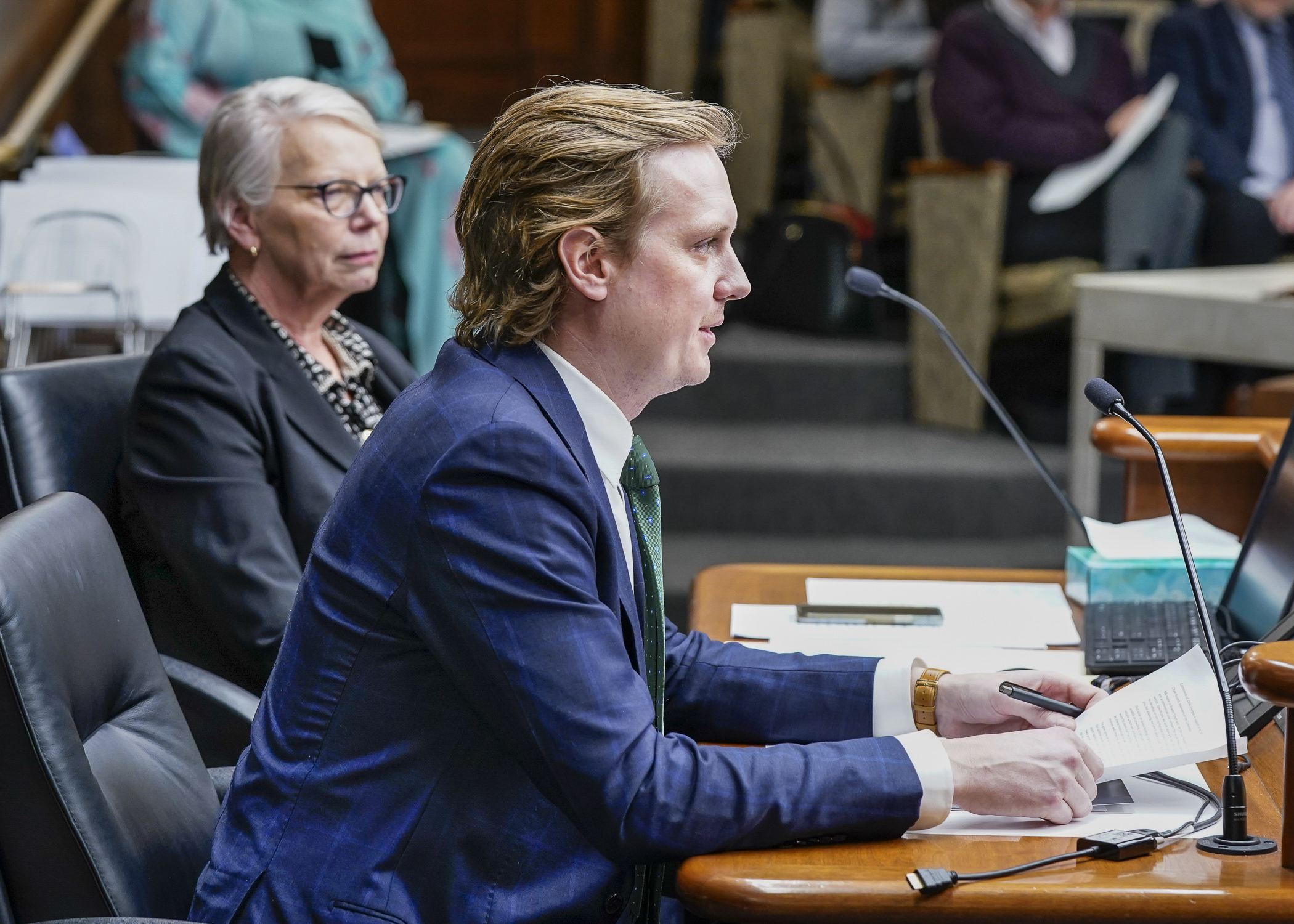More public solar projects? That's the goal of proposed grant program

It started with “Solar for Schools,” a two-year-old state program offering grants for installing solar arrays that can generate all or most of a school’s needed electricity.
Now public buildings around the state might benefit from something similar.
HF747 would fund Commerce Department grants to local units of government and tribes for the purchase and installation of solar energy systems on public buildings. Sponsored by Rep. Liz Reyer (DFL-Eagan), it was laid over by the House Climate and Energy Finance and Policy Committee Wednesday for possible omnibus bill inclusion.
“Talking to city leaders, this is something that communities want,” Reyer said. “And we are giving them an option that they don’t currently have.”
Although the bill has yet to establish an appropriation for the grants, it does specify that its source would be split between the General Fund and the Renewable Development Account. That state-administered fund was designed for developing renewable energy sources in Minnesota. Xcel Energy pays into it with annual fees of between $350,000 and $500,000 for each cask of nuclear waste it stores at its Prairie Island and Monticello facilities.
Grants would apply to solar energy generating systems with a capacity no greater than 40 kilowatts or 120% of the building’s average annual electricity consumption.
Some Republicans are strongly opposed to the bill.
Rep. Marion O'Neill (R-Maple Lake) said the bill should also be going through the commerce and local government committees. The chair of the commerce committee, Rep. Zack Stephenson (DFL-Coon Rapids), replied that the energy accounts are within the climate and energy committee’s jurisdiction.
O’Neill raised issues with who would foot the bill for maintenance and decommissioning of solar panels, while Rep. Pat Garofalo (R-Farmington) wants to know why government subsidies are necessary if solar energy is as inexpensive a power source as claimed. Isabel Ricker, clean electricity director for nonprofit advocacy organization Fresh Energy, responded that the initial capital costs of installation can be prohibitive for local governments.
Rep. Chris Swedzinski (R-Ghent) asked if local governments were required to put up any kind of financial match for the projects.
“I think that this should be a zero-barrier entry into solar,” Reyer replied. “There are small towns that would not be able to touch this if they had to make a match. And it’s a priority for me that we make it accessible to communities that want it.”
Related Articles
Search Session Daily
Advanced Search OptionsPriority Dailies
Speaker Emerita Melissa Hortman, husband killed in attack
By HPIS Staff House Speaker Emerita Melissa Hortman (DFL-Brooklyn Park) and her husband, Mark, were fatally shot in their home early Saturday morning.
Gov. Tim Walz announced the news dur...
House Speaker Emerita Melissa Hortman (DFL-Brooklyn Park) and her husband, Mark, were fatally shot in their home early Saturday morning.
Gov. Tim Walz announced the news dur...
Lawmakers deliver budget bills to governor's desk in one-day special session
By Mike Cook About that talk of needing all 21 hours left in a legislative day to complete a special session?
House members were more than up to the challenge Monday. Beginning at 10 a.m...
About that talk of needing all 21 hours left in a legislative day to complete a special session?
House members were more than up to the challenge Monday. Beginning at 10 a.m...